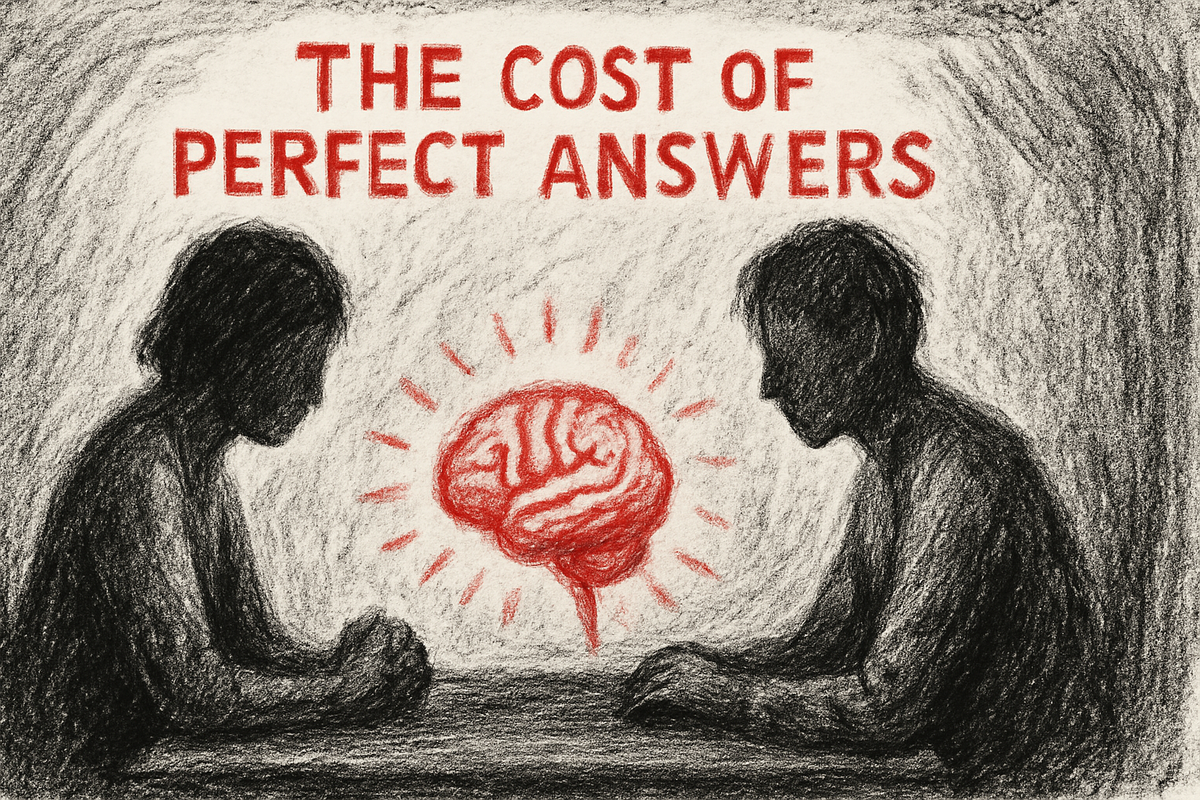The Cost of Perfect Answers
When we turn to AI for connection, efficiency, advice, even empathy, we are being confronted with something deeper: what do we expect from our relationships?

Lately, we’ve been asking AI a lot of questions. But I wonder—what questions is it asking us in return?
I don’t mean verbally. I mean existentially. Emotionally. Relationally.
When we turn to AI for connection, efficiency, advice, even empathy, we are being confronted with something deep: what do we expect from our relationships?
Human relationship is inherently messy. It’s inefficient. It’s slow. It misunderstands. It hurts. It lingers. It stings. It forgets. It forgives. It returns, again and again, to the same hard conversation until something gives way.
AI doesn’t do that. It delivers.
So here’s the danger: in a world of ultra-efficient answers, we may start resenting the beautiful slowness of each other. We may come to expect relationships to behave more like machines: accurate, predictive, responsive. But real connection was never meant to be optimized. It was meant to be felt.
At the same time, AI can be a mirror. It reflects the quality of the questions we ask. It reveals what’s missing. But it also reveals what we’re practicing. And what we practice, we get good at.
If we practice slowing down, we learn to slow down. If we practice speeding up, we become faster. If we rely on AI for clarity, connection, and responsiveness, we may forget how to accept the opposite from one another. The danger isn’t in AI itself—it’s in becoming so accustomed to its efficiency and emotional sterility that we stop engaging with the beautiful, messy inefficiency of human relationship.
So the question is: How can we use AI to train us in the art of presence, not avoidance? How can it help us build the muscle to sit longer with each other, not shorter? And in what ways can it point us toward more humanity—not replace it?
AI is not the relationship. But if we’re intentional, it might help us return to the kind of relationship we no longer even realize we’re losing.




Comments ()